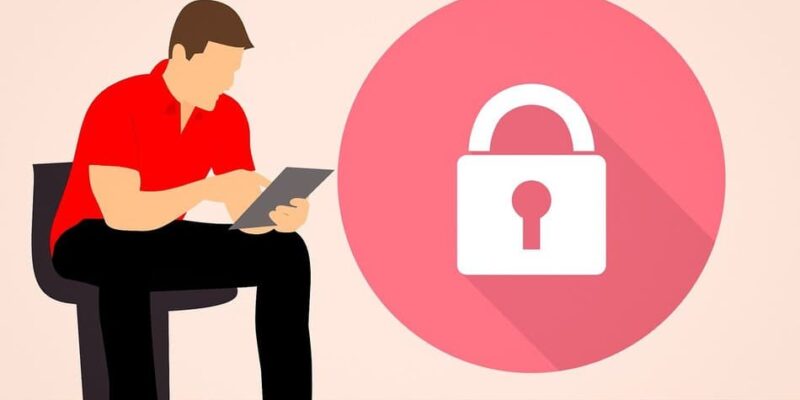Protecting your personal information has been talked about so often, you would think it is common knowledge. However, you would be surprised at how little most people take this topic seriously. Most individuals assume that they have nothing hackers would be interested in, which is where they go wrong.
Information is a multi-billion business on the black market, and hackers have resorted to stealing individuals’ personal information because it is easier to steal. Identity theft is real, and everybody should guard their personal information jealously.
Here are some ways you can effectively protect your information from prying eyes:
Create Strong and Unique Passwords
Creating strong passwords may soon very cliché, but it is one of the best defenses you can use. When creating a password, thinking outside the box helps. This means making your password very unorthodox, and steering away from apparent passwords that include birthdates, children, or pet names, etc. A phrase from a favorite book in upper-and lower-case letters and coupled with symbols and numbers would throw off a hacker.
Change the password regularly and create a unique password across each site. To keep track of all these different passwords, engage the password manager’s use, which remembers for you this password. The password manager’s master password should be unique and hold the rest of your passwords.
Use Multifactor Authentication
Multifactor authentication is used alongside a strong password. After inputting your password, a second code is sent to your mobile phone or device that only you have access to. Without this code, the password is useless. You can also opt to use biometric authentication![]() , which requires a fingerprint or retina scan to gain access, which is one of the most secure means of protection.
, which requires a fingerprint or retina scan to gain access, which is one of the most secure means of protection.
Install Protective Software
Install software such as anti-spyware, antivirus, and activate firewalls. Ensure this software is often updated so that you are always protected. There is numerous protective software in the market, and among the hundreds, one of the best antivirus software is Bitdefender![]() , which saves you against infections and intrusions. This software installs security patches for your OS (operating system) and other programs.
, which saves you against infections and intrusions. This software installs security patches for your OS (operating system) and other programs.
Avoid Free Wi-Fi
We all love free Wi-Fi, and to save on data, most of us have activated the free Wi-Fi notification on our gadgets. Use free Wi-Fi with caution, and to be safe, use it only if you ![]() have installed a VPN
have installed a VPN![]() (Virtual Private Network) app. A VPN encrypts all your data, rendering it unreadable to any eavesdropper.
(Virtual Private Network) app. A VPN encrypts all your data, rendering it unreadable to any eavesdropper.
Free Wi-Fi networks have little or no security, and most hackers lurk in these networks, ready to steal your information via techniques like Man-in-the-Middle attacks. If you enter your credit card details over such unsecured networks, your details might land in the wrong hands.
Avoid Clicking on Links or Downloading Attachments
Hackers carry out some attacks like phishing via email links or attachments. If you receive an email that looks legit such as from your bank, do not click on the attachments or links, or you might be redirected to a bogus site that prompts you to input your details such as passwords or bank details. If in doubt, go to your browser and navigate directly to your bank’s official website. Downloading attachments inject different types of malware or viruses into your computer or device. When you visit a website like a bank or eCommerce, you need to check the spelling of a domain name. Also, you can click on a secured padlock to check whether the website has an SSL certificate or not. A website owner should understand the importance of an SSL certificate as there are many cheap SSL certificate providers who can offer the best SSL for your website. An SSL certificate ensures users about the website’s legitimacy.
Avoid Oversharing on Social Media
Most people share too much information about themselves on their social media handles. Posting too much personal information gives identity thieves the details they need in your life. The data allows the hackers to hack into your social media accounts, post, and get access to your money and other personal details. Limit your posts to a small circle of friends, and never post your Social security Number, phone number, physical address, or personal details.
Enable Screen Lock for Devices
If you must, store your financial information on your laptop or device such as your mobile phone. Do not use an automatic login that saves your login details, and make sure you log out when done. This makes it hard for anyone who gets hold of your laptop to get this information.
Lock your laptop or smart device when not in use. This way, if anyone gets hold of your device, they cannot access your data. For smartphones, activate the erase data feature if it is stolen.
Conclusion
Personal information is supposed to be private, so you should make sure you strive to keep it that way. Being careless with your information might lead to top data leaks or identity theft, and eventual loss of data and money. Following these tips will go a long way in keeping your information safe.






Comments